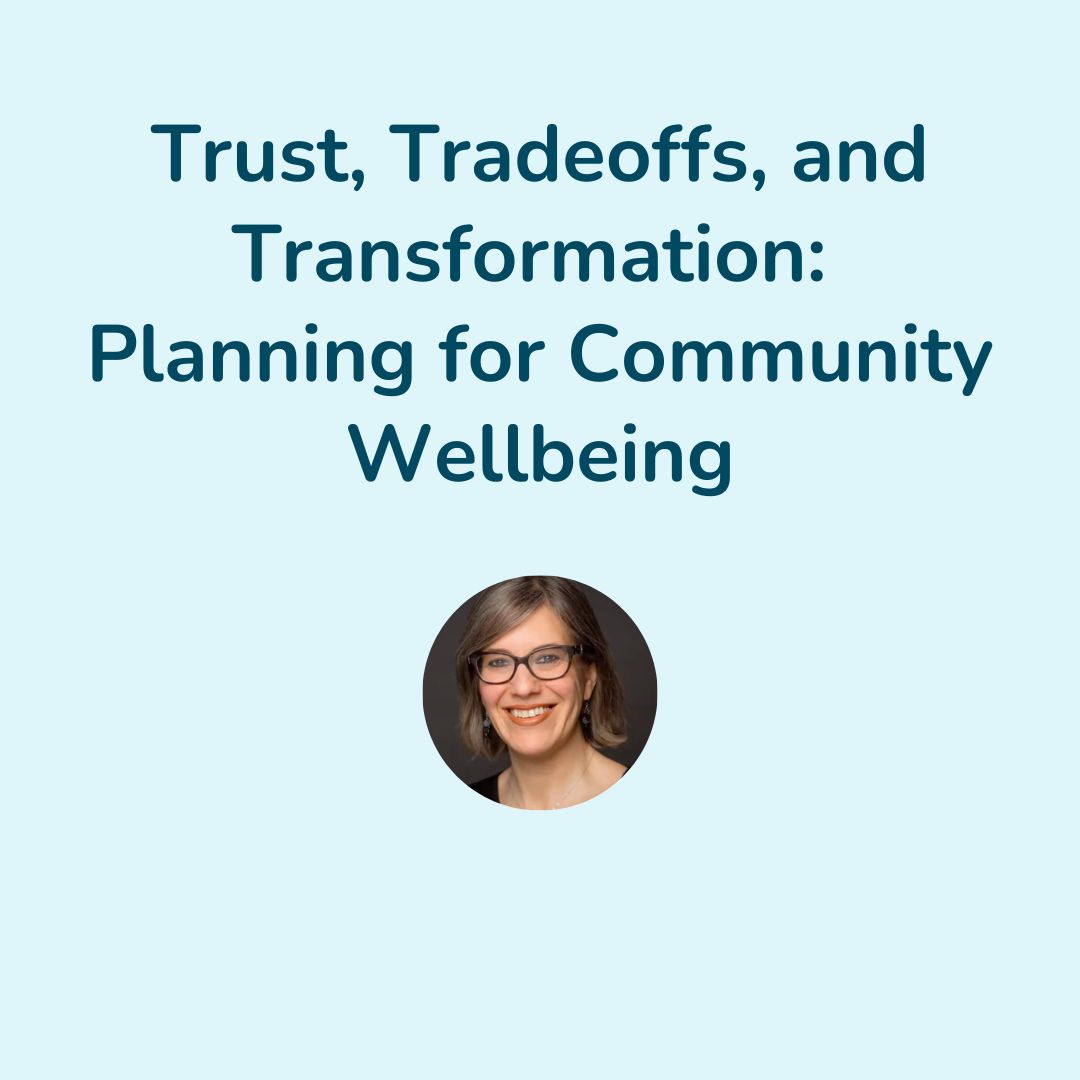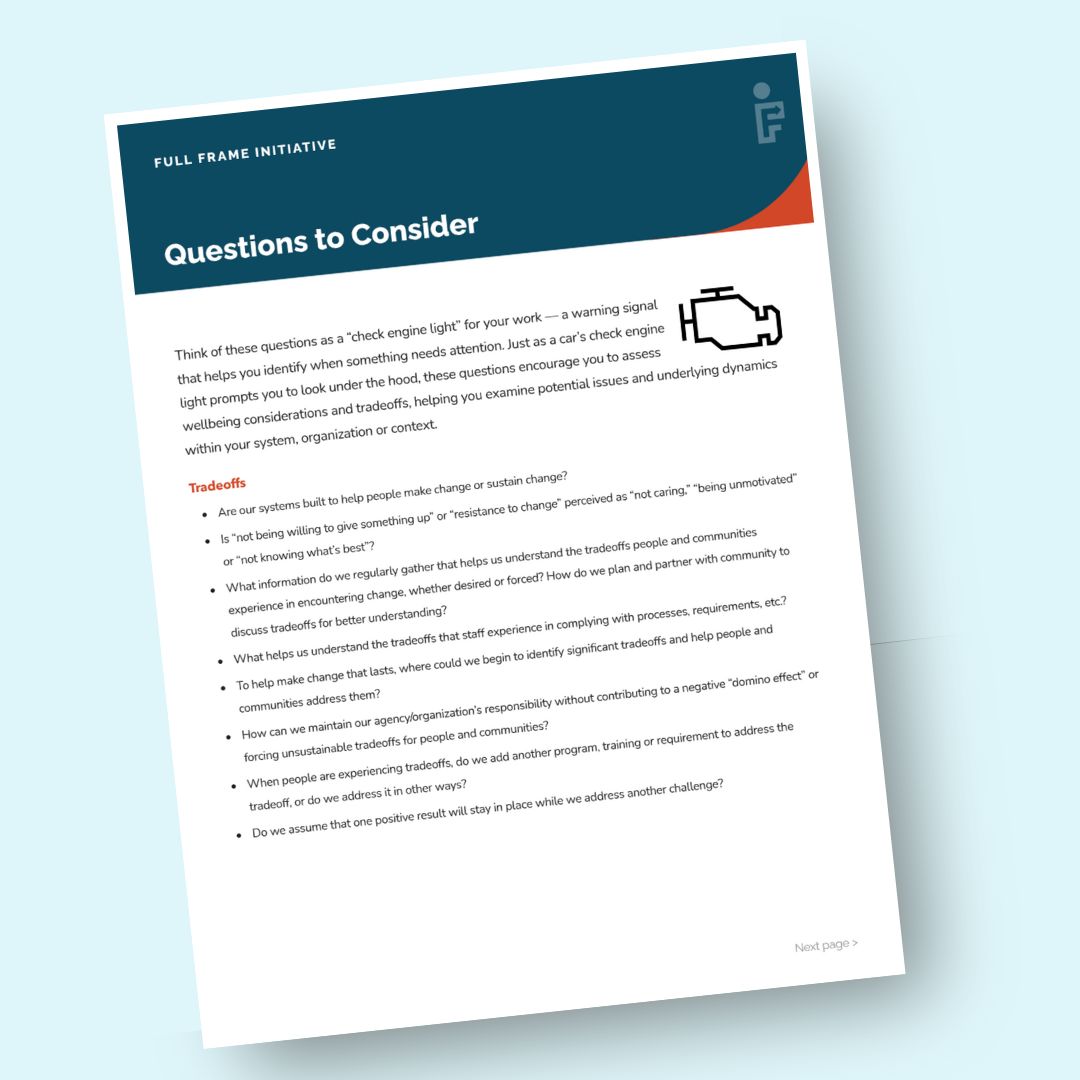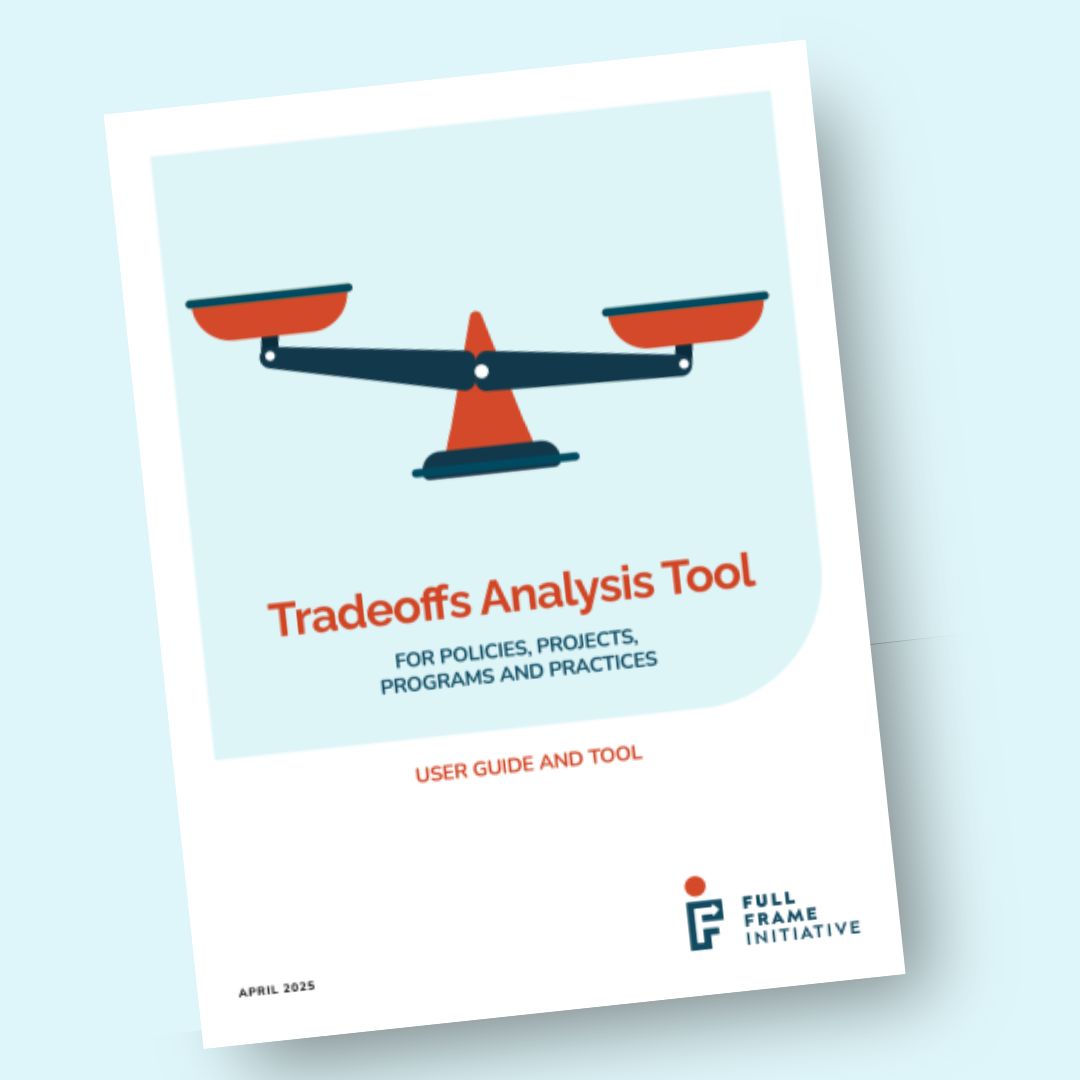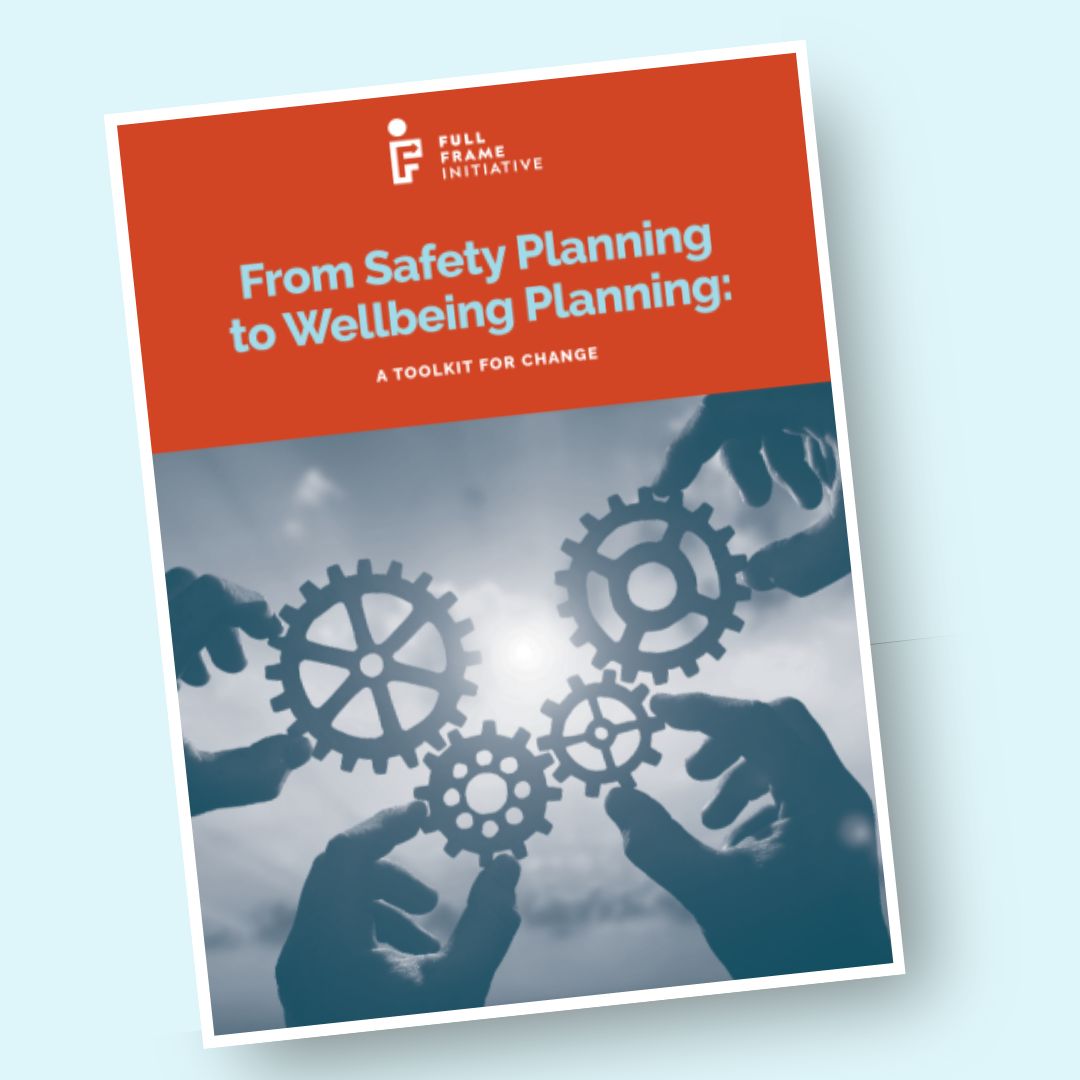
FFI Founder & CEO Katya Fels Smyth and partners from the City of Cleveland and City of Kingston introduced WIATT (the Wellbeing Insights, Assets & Tradeoffs Tool) in a webinar for the American Planning Association, St. Louis. Topics covered in this conversation included:

This tool offers a set of questions related to tradeoffs and the Five Domains of Wellbeing that you can use as a “check engine light” for you and your work.

Use this tool to identify how a specific policy, project, program or practice will impact different stakeholders’ wellbeing, allowing you to anticipate and address unsustainable tradeoffs.

Learn how domestic violence practitioners can shift from a singular focus on short-term safety toward increasing survivor safety in the context of creating opportunities to support long-term wellbeing.